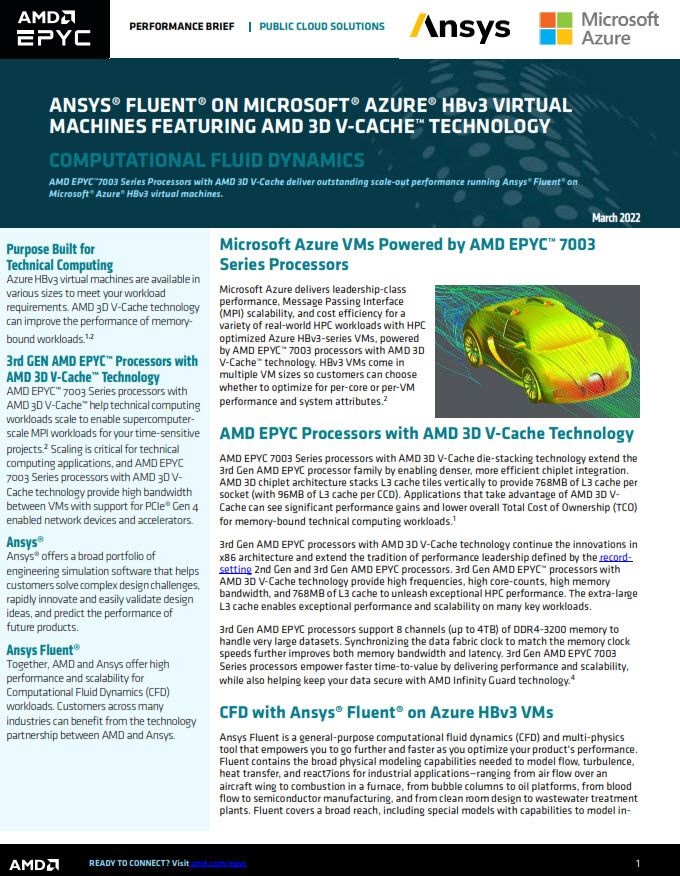The SC10 Doctoral Showcase is great forum for Ph.D. students in HPC, networking, storage and analysis. To qualify, Doctoral candidates who plan on graduating within the next 12 months submit a short summary of their research. Selected speakers get to present a 15-minute summary of their best research to experts in academia, industry and research […]
Archives for October 2010
Lustre Mulls the Fork in the Road
Dan Olds over at the Register gives us the Big Picture on the Lustre file system now that OpenSFS has formed: The big HPC labs that may not be Oracle customers for much longer still need tech support. This is where Whamcloud, Xyratex, Cray, and DDN come in. They will offer support for Lustre file […]
Intel Academic Community Plans Streaming Broadcast from SC10
httpv://www.youtube.com/watch?v=IeELV9ZPl94 Can’t make it to SC10 in person? Join the Intel Academic Community for LIVE streaming of SC10. On November 16-18, tune in for exclusive interviews with professors, student challenge winners, and technical experts. While you’re waiting for SC10, you can download videos from their SC09 broadcast including: A “Hands-on” Introduction to OpenMP Tim Mattson […]
Allinea Collaborates with CEA on Debuggers for 100K Cores and Beyond
This week Allinea Software announced an expanded collaboration agreement with CEA, the French government-funded technological research organization. The aim of the collaboration is to make debugging tools both portable and easy to use for large scale debugging on hybrid systems with well over 100,000 cores. Working together, we can address the growing numbers of cores […]
Interview: SPM.Python to Strike at SC10 Disruptive Technologies Zone
Each year, the SC Conference seeks out new technologies with the potential to disrupt the HPC landscape as we know it. The Disruptive Technologies booths, located in the SC10 exhibit hall, will showcase technologies ranging from storage, programming, cooling and productivity software through presentations, and demonstrations. So what do these disruptive technologies look like? I […]
D.E. Shaw Supercomputer Sets Protein-folding Record
According to this story at Nature News, a specially designed supercomputer named Anton has simulated changes in a protein’s three-dimensional structure over a period of a millisecond — a time-scale more than a hundred-fold greater than the previous record. Named after after Antonie van Leeuwenhoek, the seventeenth-century father of microbiology, Anton was created at D.E. Shaw […]
OpenMP and MPI Duke it Out in Benchmarks
Douglas Eadlne over at Linux Magazine writes that benchmarking OpenMP vs. MPI is a recipe for surprise: In a previous column, I had an opportunity to test OpenMP and MPI on a brand new 8-core SMP machine. My interest was to see how well MPI codes worked on an SMP platform. The actual machine was […]
OpenSFS Forms to Help Lustre Move On From the Dark Tower
Earlier this year, Oracle indicated that it would stop commercially supporting Lustre beyond 1.8.3 except when packaged with Oracle hardware. This was not welcome news to the Lustre community, who use the popular open source parallel file system to wrangle ever-increasing volumes of data generated by today’s advanced HPC systems. In response today, Cray, DDN, […]
Why The HPC Growth Equation Hasn’t Added Up
An Exclusive Feature Report by Thomas Thurston, Growth Science International
Why doesn’t the HPC industry grow more? While HPC has certainly had its booms and busts, hardly a conference, panel or roundtable goes by without the issue of frustrated industry growth rolling down the aisle. Some estimates put the industry’s growth at a paltry 5% annual average between 1999 – 2009. While there’s no shortage of speculation as to the cause, perhaps it’s auspicious timing that Harvard Professor Clayton Christensen has been slated to deliver the keynote address at SC10 in New Orleans next month. He is, after all, the Yoda of disruptive innovation.
It turns out, not all innovation is created equal. In Christensen parlance, innovation is either “sustaining” or “disruptive,” with differing growth consequences to be expected in each case. The challenge for HPC is that, by its very nature, the industry tends to disproportionately favor sustaining innovation rather than disruptive. This, in turn, systemically holds back the full growth potential of HPC.
HPC 101: The Poster
Mohamed F. Ahmed, a blogger and PhD candidate in the department of Computer Science and Engineering at the University of Connecticut, has posted a wonderful poster on the fundamentals of HPC. According to his blog, Mohamed enjoys teaching and created this poster to introduce high performance computing to both undergraduate and new graduate students. Poster topics include: […]



